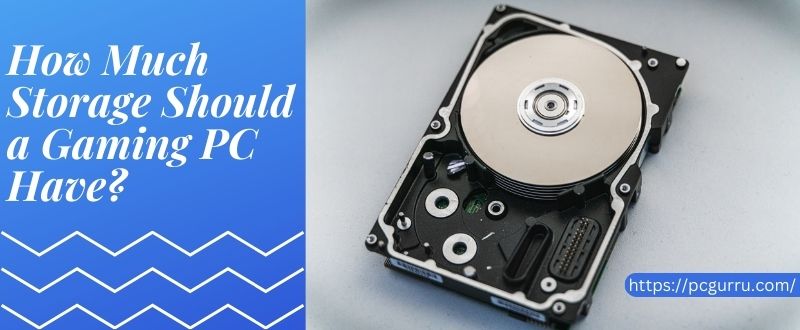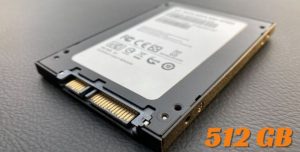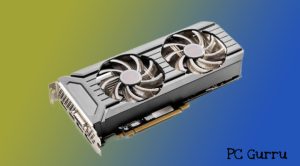How Much Storage Should a Gaming PC Have? Are you considering the purchase of a gaming laptop? That is perfect, yet there’s something else you truly believe should do before buying your gaming PC – figure out how much solid-state drive (SSD) or how much limit should a gaming PC have as necessary to keep the smooth convenience of your system without toning down your PC’s show.
Gaming workstations regularly go with limited additional room since they’re expected to be modest and light, so figuring out how much space you really need can intrigue. As PC games today are making at a quick speed, diligently dealing with their quality and components, allowing the most sensible plans and smooth gaming. These components consume gigantic additional room which makes circle space principal while playing. In this blog section, we will look at how much limit should a gaming PC need to keep smooth working of the PC during playing.
How Much Storage Should a Gaming PC Have?
Most high-end gaming laptops will have at least 256GB of storage space on board already, so unless you want to load up on games and other data quickly—or just like having extra space around—you won’t need anything more than that right away. Some manufacturers are offering even larger capacities, but there is no real reason to get anything above 512GB right now.
Many gamers think that 1TB is sufficient for playing up to 10 games. If you’d like to ensure your data is secure for the future the best option is to get a 2TB HDD. You can also get a 500GB SSD to keep your operating system as well as games you play frequently since SSDs are much faster than hard drives.
The amount of space you can use on a gaming computer is contingent upon the number of games that you enjoy as well as your game-playing behavior. It is possible to start enjoying games with your gaming computer with 500GB of the hard drive. But you’ll be restricted to a couple of games before you end up running out of room. If you like to install games but not remove them to free up the space to install new ones, you’ll need a larger drive.
SSD for Gaming Laptop
A good-quality solid state drive, or SSD, is a significant investment. You want to make sure you’re getting enough storage and speed to be worth it. Luckily, there are several factors you can use to calculate how much storage your gaming laptop needs. To figure out how much storage you need, we need to consider the following questions:
- How many games do you plan on installing?
- How big are those games?
- What kind of games do you play?
- What else will be on your laptop?
- What type of laptop do you have now?
- How much are you willing to spend on a new laptop?
- How fast does your current laptop’s hard drive run?
- How much storage space is available on your current laptop’s hard drive?
- Are you planning on using an external hard drive with your laptop as well?
- How long do you plan to keep your laptop?
After answering these questions, we can start looking at our options. There are two main types of storage devices available: mechanical and solid state. Mechanical drives are what most people have in their computers right now—they use spinning disks and magnetism to store data.
Solid state drives, or SSDs, use flash memory instead of magnetism to store data. They’re much faster than mechanical drives because they don’t need to physically move parts around—but they also come with a price tag that’s generally higher than mechanical drives.
Need of SSD for a gaming laptop
The thing about gaming laptops is that they’re small. They must be since gamers need to move around with them and carry them often. But even though they are small, there’s still a lot of stuff you can put on one. For instance, to build a performance-optimized gaming laptop, you’ll have to have an SSD installed with enough space for your games and possibly your operating system too.
A lot of people ask how much storage should a Gaming PC have; how many gigabytes does it take to play game? There’s no simple answer here— because there are so many factors involved. But read on! We’ve done some research that will help you to take a buying decision.
mSATA, M.2 and PCIe options in SSD
These are form factor and describes how SSD in built. People get confused about all these new options in solid-state drives (SSDs) for gaming laptops, especially if you’re not a techie or don’t keep up with tech news. In fact, it might be better to think of M.2 and PCIe as distinct standards, rather than different physical methods. With newer devices making use of both mSATA and M.2 slots, while some motherboards may also offer PCIe connections, it can all seem very complicated.
NVMe vs SATA
These are data transmission protocol facilitating data transfer on SSD. Solid state drives (SSDs) are one of those little additions that can turn your laptop from slow to speedy. The next generation of solid-state drives has high performance value, though: it’s an entirely new method of storage called NVMe. If you’re aiming for maximum speed on your laptop, consider NVMe for improved data transfer rates. It’s a significant leap in performance.
But if you’re not sure which drive you should get for your laptop, don’t worry we’ve got everything covered. This guide will help with choosing between NVMe vs SATA so that you can find just what you need for your gaming or work PC today! What Is an NVMe Drive? The biggest advantage of NVMe over SATA is its sheer speed. While most laptops come equipped with regular SSDs running on SATA III interfaces.
NVMe drives offer much higher read/write speeds because they use PCIe interfaces instead. It might seem like there wouldn’t be a huge difference between each standard’s respective interface speeds. The main reason is that both protocols have similar theoretical throughputs (2GB/s). However, real-world numbers can vary significantly due to overhead costs. These variations may be influenced by factors such as processor architecture and bus type. In fact, testing shows that while some models may only reach 2GB/s on average, others can exceed 4GB/s under ideal conditions!
Managing Storage on a Gaming PC
Even if you’ve got enough storage, you might end up running out of space due to the increasing number of game files and the demand for high-resolution sound and images. This is particularly true when you download games often. In the end, it’s possible to control your storage space to allow room for new games.
One of the most important things that experts recommend and is easy to do is to uninstall your old games in order to free your space. There may be several games that you’ve never played for a long time and deleting them would seem like the ideal solution. It can prove difficult for the dedicated player to decide the games they want to play and what to take out. The game can be deleted but it’s not irreparable since players can download the game at any time you’d like to play.
But downloading a brand-new game can take hours and can be a hassle for many. If you’re using an online game subscription service like Steam or Steam, you might need to look deeper and remove the installation files for various games. It’s because game developers could choose various locations to install their games and save their files. If you’re looking to do an intensive clean, then you must try different ways to locate these documents. It’s the reason why players think about expanding their storage capacity by purchasing the HDD as well as an SSD. These storage devices are efficient devices to assist you in solving the space issues you face. They’re much less expensive than they did before, which allows you to easily upgrade your storage.
Choosing the Right Storage Solution for Your Budget and Performance Needs
If you’re budget conscious you can choose the highest capacity HDD and be more affordable or smaller SDD that is smaller, such as 500GB. SSDs are more resistant to shock and significantly faster than HDDs and, therefore, they are ideal for the storage of the OS as well as applications that require fast regular access to your disk like games.
Furthermore, if have the option of choosing between different connections, choose the NVMe option since it’s significantly more efficient than SATA. The HDD is ideal for storing pictures, movies as well as games that aren’t played frequently. To enjoy a more efficient gaming experience, transfer a game from HDD to SSD.
Buying tips:How Much Storage Should a Gaming Pc Have?
Whether you’re shopping for an Ultrabook or a Gaming laptop, here are some things to look out for before making your purchase. It is important to know that there are different kinds of storage space on laptops. Some have one solid drive with nothing but your operating system and programs while others have multiple drives that allow you to install applications, videos, music, and other files.
The primary benefit of having a secondary hard drive installed in your computer is being able to use it as storage space without affecting any of your working programs or data. You can get an external hard drive for games, movies, and songs. Alternatively, consider a large-capacity SSD.
Conclusion
In this article we addressed the query “how much storage should a gaming PC have”? If you’re a gamer, be aware of the amount of space on your hard drive and how much time you’re at the computer at your computer at a particular time. This will determine the number of games you can play as well as whether you should get rid of any old files. The investment in new games isn’t likely to be a lot of enjoyable. Ensure storage optimization. If you can invest this amount in diverse games, wouldn’t it be logical? Having sufficient storage makes it easier to download additional games.








